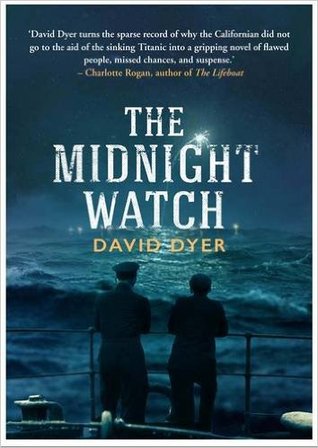Jaffareadstoo is delighted to be hosting today's stop on the
Fire Damage Blog Tour
I'm delighted that the author Kate Medina has kindly taken the time to answer some questions about Fire Damage...
Welcome to Jaffareadstoo, Kate.....
How long have you been writing
and what got you started?
I started to write seriously
because I had the idea for my debut thriller, White Crocodile, an idea that I
loved and I wanted to get it down on paper. White Crocodile, a thriller set in
the land mine fields of Cambodia, published in 2014, is very personal to me
because it developed from my own experiences. I had the idea whilst I was
Managing Editor, Land-Based Weapons, at Jane's Information Group, the world’s
leading publisher of defence intelligence information. As part of that role, I
worked alongside professional mine clearers in Cambodia and was privileged to
meet many Khmers - adults and children - who had been devastated by losing
limbs to land mines. When I returned to England, I had the very strong sense
that I wanted to shine a light into what I found to be a heartbreaking corner
of the world. The device of a page turning thriller that drew people into the
story and characters whilst at the same time taking them into this world was, I
felt, a great way to shine that light.
Unlike many novelists who have
journalistic backgrounds, I had no formal background in writing, so while I had
a great idea and plot, I wanted to learn how to write well. I enrolled in a
Masters in Creative Writing at Bath Spa, one of the top creative writing
courses in the U.K., and wrote the first draft of White Crocodile whilst there.
Although I only began to write
seriously with a view to getting published five years ago, much of my childhood
was spent immersed in stories – both reading and writing them. Enid Blyton's
Famous Five series was one of my favourites and in common with many other
tomboys, I wanted to be George. I am still an avid crime and thriller reader
and love established writers such as Jo Nesbo, Steig Larsson, Martina Cole and
Mo Hayder and newer writers such as Eva Dolan, Clare Mackintosh and Sarah
Hilary.
Writing White Crocodile was far
harder and took much longer than I had anticipated, but I must have secretly
enjoyed the process as I started Fire Damage as soon as my publisher had
signed-off the final draft of White Crocodile!
Tell us three things about your
novel, which will be of interest to the reader.
Fire Damage is the first in a
series featuring twenty-nine-year-old Dr Jessie Flynn, a clinical psychologist
working with the Defence Psychology Service. Jessie is counselling Sami Scott,
a deeply traumatised four-year-old boy whose father, a Major in the
Intelligence Corp, was badly burnt in a petrol bomb attack in Afghanistan. Sami
is terrified of someone he calls the ‘Shadowman’ and tells Jessie that ‘the
girl knows’. However, there are no girls in Sami’s life. He also carries a huge
metal Maglite torch with him wherever he goes, clutching onto it like a loved teddy bear. Sami’s parent insist
that his trauma stems from seeing his father in hospital burnt beyond
recognition and that Major Scott is the ‘Shadowman’, but Jessie feels that that
something far darker explains Sami’s trauma.
With Fire Damage, I wanted to
write a novel and kick-off a series that was original and a little out of the
ordinary within the crime genre, in terms of the characters, the world those
characters move in, and the stories that they become embroiled in. Combining
psychology, my military experience and the fact that I wanted my protagonist to
be a woman, to reflect the huge number of clever, funny, independent women that
I know, it was an easy step to come up with Jessie.
Psychology is such an interesting
subject and so relevant to crime as a genre. I am lucky enough to have a degree
in the subject, so it felt very relevant for me to use that knowledge in my
lead protagonist. Jessie’s profession enables me to explore crime from a
uniquely psychological perspective, not only the criminal’s motivation,
thoughts and feelings, but also the victims and the investigators – Jessie herself
and the other key characters in the series, Captain Ben Callan and Detective
Inspector Bobby ‘Marilyn’ Simmons.
Fire Damage is foremost a story
about families: love and hate, kindness and cruelty and the destructive nature
of some relationships. The fear and helplessness experienced by a child trapped
in a dysfunctional family was for me, as a psychologist and a mother of young
children, a very powerful emotion to explore, as well as its flip side –
intense love and an overwhelming desire to protect. In Fire Damage I have
considered these themes not only through Sami Scott, the deeply traumatised boy
Jessie is counselling, but also through Jessie’s troubled childhood and her own
personal demons.
I hope that readers enjoy reading
Fire Damage as much as I enjoyed writing it.
What would you like readers to
take away from Fire Damage?
I found a lot of Fire Damage hard
to write in that much of the novel is intensely emotional – both the heroine,
Jessie Flynn, and Sami Scott the deeply disturbed four-year-old boy she is
counseling, go through tough emotional journeys throughout the course of Fire
Damage. However, there are also moments of real lightness and humour, which
balance out the dark side!
My aim was to write a thriller
that grabbed readers by the throat and by the heart, and that is what I have
hopefully achieved with Fire Damage. I want readers to remember the novel, the
complex characters they meet within it, and the issues it raises long after
they have finished the last page.
My thoughts about Fire Damage...
Doctor Jessie Flynn is an
interesting and complex protagonist, and working as she does for the Defence
Psychology Service, she comes into contact with fragile and vulnerable army
personnel who have been damaged in the line of duty. When she is asked to
counsel Sami Scott, the four year old son of Major Nicholas Scott, not only
does she encounter a terrified child who has been scarred by a dark tragedy, but also Major
Scott’s own damaged vulnerability makes treating Sami extremely difficult.
Working closely as she does with other army personnel, Jessie comes into
contact with Captain Ben Callan of the Military Police Special Investigation,
and gets drawn into a separate ongoing enquiry which is both perplexing and
time consuming.
Jessie Flynn‘s world as a clinical
psychologist is expertly explained, and I especially liked the idea that she is
just as flawed, and has almost as many hang ups, as the people she attempts to
counsel. Her relationship with Ben Callan is intriguing; they have an
interesting connection, a shared history which hovers on the professional and
yet, there is a lingering intimacy between them which is as intriguing, as it is provocative.
From this tantalising early beginning; I’m sure that Jessie and Ben’s
relationship will be explored as the series progresses.
It’s fascinating to have a crime
novel told from the perspective of a clinical psychologist, as without being
encumbered by too much police procedure, the criminal aspect of the story takes
on a sharper meaning, and having a damaged child at its centre, allows Fire Damage to show the vulnerabilities
of those people and families who get caught up in events beyond their control. In
many ways Fire Damage is an emotional
read, the damage that a dysfunctional family can inflict on a child is
tremendous, and yet, with sensitivity and insight into the psychology of daily
life, a story of terrible misfortune starts to emerge.
The story concludes well, with all the loose ends coming together, and yet, the ending lends itself very well to a continuation of the series. I am sure that Jessie’s character will continue to go from strength to strength as this series progresses.
Best Read With....….a large pot of tea and a comforting slice of cake, laden with calories
Twitter @KateTMedina
Fire Damage is published by Harper Collins on the 24th March, 2016 and is available to buy online and from all good bookshops.
My thanks to the author Kate Medina for her insightful answers to my questions and to Felicity at Harper Collins for the invitation to be part of this exciting blog tour.
Do visit the other stops on the tour.
~***~

























